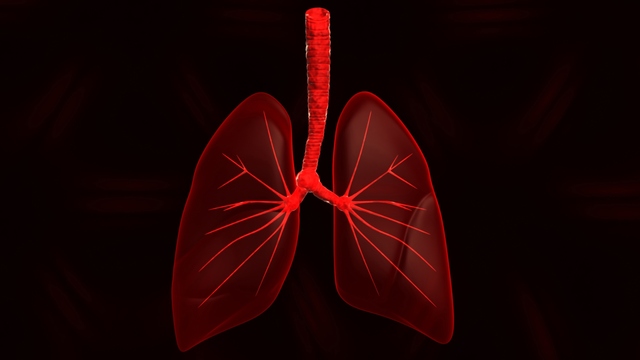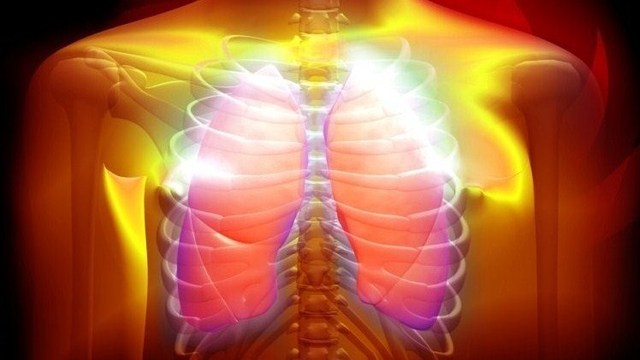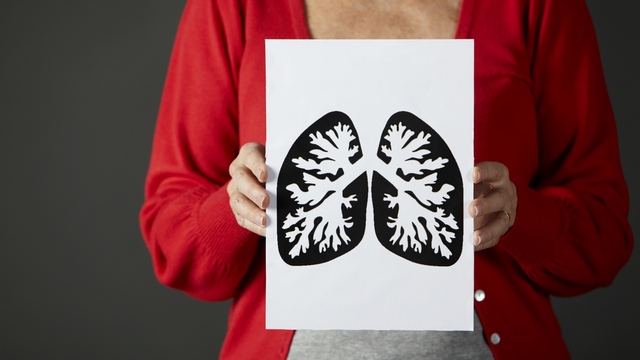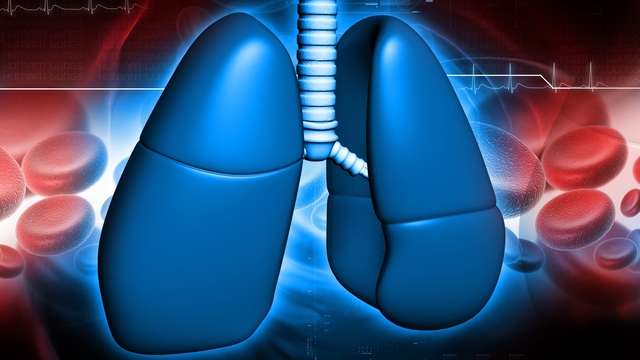 Divakaran Dileep/PhotoSpin
Divakaran Dileep/PhotoSpin
Do you, or does someone you know, cough a lot or get out of breath easily? Many people mistakenly think coughing and breathlessness are a normal part of getting older.
These symptoms can be the first signs that you have a serious condition known as COPD.
Chronic obstructive pulmonary disease (COPD) is a progressive condition that makes it hard to breathe. COPD is a general term that includes several specific diseases such as emphysema, chronic bronchitis and non-reversible asthma.
Scientists estimate that 24 million people in the United States have COPD. This condition typically comes on slowly and gets gradually worse. Many people don’t recognize the symptoms until their lungs are significantly damaged.
These are the five most common symptoms of COPD:
• Coughing
Chronic coughing at least three months out of the year for two consecutive years is a primary symptom of COPD. This is often referred to as a “smoker’s cough.” Coughing may also sometimes produce mucus.
• Mucus, also called phlegm or sputum
Excess mucus in your lungs may be clear, white, yellow or greenish. You may feel a need to clear your throat first thing in the morning due to excess mucus, and may cough it up on a regular basis.
• Shortness of breath or breathlessness
This may be especially noticeable during physical activity but may also occur during normal daily activities.
• Feeling tired or fatigued
• Wheezing
This whistling or squeaky sound when you breathe means air is having a hard time moving in and out of your lungs. This can be caused by swelling inside the lungs or by mucus that is blocking your airways.
COPD can also cause chest tightness, frequent respiratory infections, swelling in the feet, ankles or legs, weight loss and reduced muscle endurance.
If your symptoms flare up or become unusually severe, you may need treatment in the hospital. Get emergency care if you experience these symptoms:
• You can’t catch your breath or talk.
• Fingernails or lips turn blue or gray (caused by very low oxygen in your blood).
• You have a very fast heartbeat.
• You're not mentally alert.
• Your standard treatment for COPD symptoms is not working.
Currently there is no cure for COPD. But early diagnosis and treatment can slow the progression of the disease and help protect your lungs from more damage.
If you have symptoms of COPD or if you have questions about the condition, talk to your health.care provider.
Sources:
COPD Foundation. What is COPD? Web. November 3, 2014.
http://www.copdfoundation.org/What-is-COPD/Understanding-COPD/What-is-CO...
Mayo Clinic. COPD Symptoms. Web. November 3, 2014.
http://www.mayoclinic.org/diseases-conditions/copd/basics/symptoms/con-2...
America Lung Association. COPD Symptoms, Diagnosis and Treatment. Web. November 3, 2014.
http://www.lung.org/lung-disease/copd/about-copd/symptoms-diagnosis-trea...
National Heart, Lung, and Blood Institute. What Are the Signs and Symptoms of COPD? Web. November 3, 2014.
http://www.nhlbi.nih.gov/health/health-topics/topics/copd
Reviewed November 5, 2014
by Michele Blacksberg RN
Edited by Jody Smith




